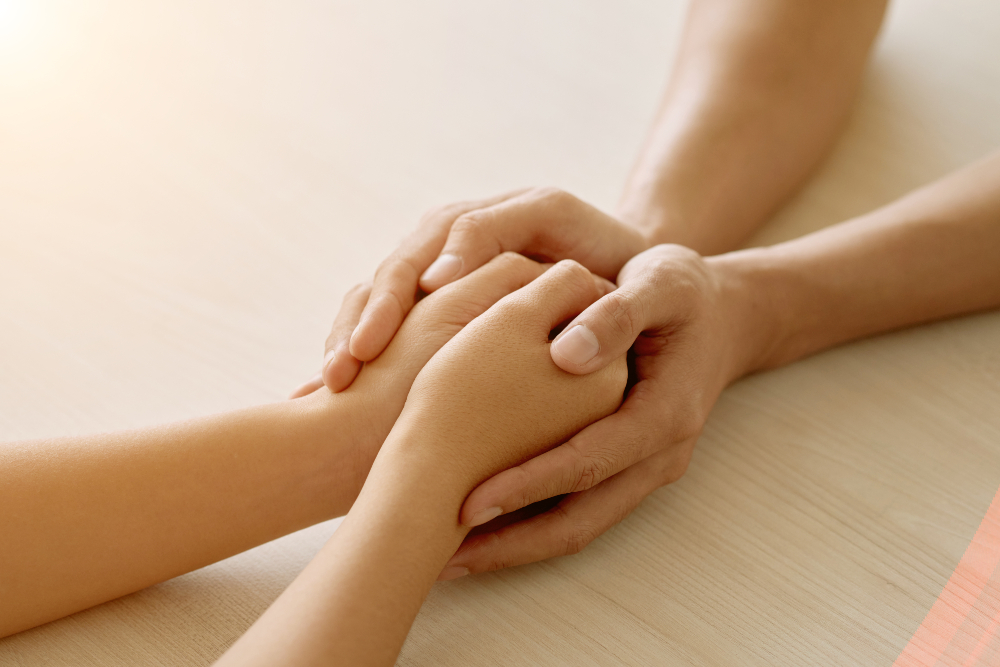
How to Support a Loved One Who Is Experiencing Domestic Violence
If you know or suspect that someone you know is a victim of domestic violence, it can be difficult to help them without worsening their situation. However, it’s important not to let the fear of saying the wrong thing prevent you from reaching out to them. Waiting for the perfect words or actions may prevent you from seizing an opportunity that can genuinely help the victim. These situations are complex and nuanced and often require a deep personal understanding to help victims find the genuine help they need. Thankfully, there are some basic steps that you can take to start helping your loved one experiencing domestic violence find the help they need.
3 Ways to Support a Loved Experienced Domestic Violence
Here are three ways you can support your loved one experiencing domestic violence. While these three steps are a great place to start, it’s essential to understand that every domestic violence situation is unique. Some of these support tips may work better than others, depending on the situation at hand. Base your approach on the needs for the situation you are experiencing. That said, here are the three supporting tips you can use to start helping your loved one.
1. Make Time for Them
Most people know that a major component of domestic violence is the victim’s isolation. The abuser aims to rid the victim of their support system, so they feel they have no way out or anyone who loves them enough to help. If you suspect that someone you know is experiencing this type of isolation, you must make time for them. The moment victims feel cut off from their loved ones and the world around them, it becomes hard for them to see a way out.
2. Start a Conversation
If possible, attempt to discuss their situation. You can bring up your concerns for their safety or mention that you’ve noticed shifts in their moods. However, you should take it slow and not pressure them into an open conversation about the abuse they are experiencing. Forcing the topic may cause them to create distance from you, further alienating them from people who care about them. If they don’t want to talk about the situation, it’s best to wait for them to come to you.
If the person does decide to open up, it’s vital to listen without judgment. Any sign of judgment may make the victim feel backed into a corner, and they may shut down once again, closing the window you had to help them. Furthermore, they must know you believe them about their situation. Sometimes, victims who approach their community or community services are met with disbelief, making it nearly impossible to trust someone to help them.
3. Have a Safety Plan
Victims who leave their abusive partners are at significant risk of being further abused or killed by their abusers, which is why it’s imperative that victims have a personalized safety plan before a crisis occurs or before they decide to leave. You can make a huge difference in your loved one’s life by helping them make a safety plan. The safety plan should include the following:
- A safe place to go in case of an emergency or if they decided to leave
- A prepared excuse to leave if they feel threatened
- A code word to alert loved ones that they need help
- An escape bag with cash, important documents, toiletries, and a change of clothes
- A list of emergency contacts including trusted people, local shelters, and domestic abuse hotlines
The safety plan that is in place can potentially save the life of your loved one. It’s vital to think about this plan carefully, considering all possible reactions their abuser may have and formulating a strategy to counteract them.
Work with an Experienced Orlando Domestic Violence Attorney
At Fighter Law, we know domestic violence cases require a personalized hand. Our team of board-certified attorneys has decades of experience helping the residents of Orlando find the justice they deserve. We are dedicated to helping our clients achieve the best possible results. If you wish to schedule a consultation to discuss your situation with one of our skilled Orlando domestic violence attorneys, you can call (407) 344-4837 or fill out our contact form.
Share:
free case evaluation
Fill out the form below for an free evaluation of your case.
Categories
- Birth Injury
- Boating Accidents
- Car Accidents
- Civil Rights
- Criminal Defense
- Cyberstalking
- Divorce
- Dog Bite Injury
- Domestic Abuse Charges
- Domestic Violence
- Drug Charges
- DUI Charges
- Family Law
- Felonies
- Fighter Law Firm
- Firearms
- Firm News
- Guardianship
- Injunction Removal
- Injunctions
- Marketing
- Personal Injury
- Repeat Violence Injunction
- Restraining Order
- Seal and Expunge
- Self Defense
- Sex Crimes
- Slip and Fall
- Stalking Injunction
- Theft and Robbery
- Theme Park Trespasses
- Traffic tickets
- Uncategorized

